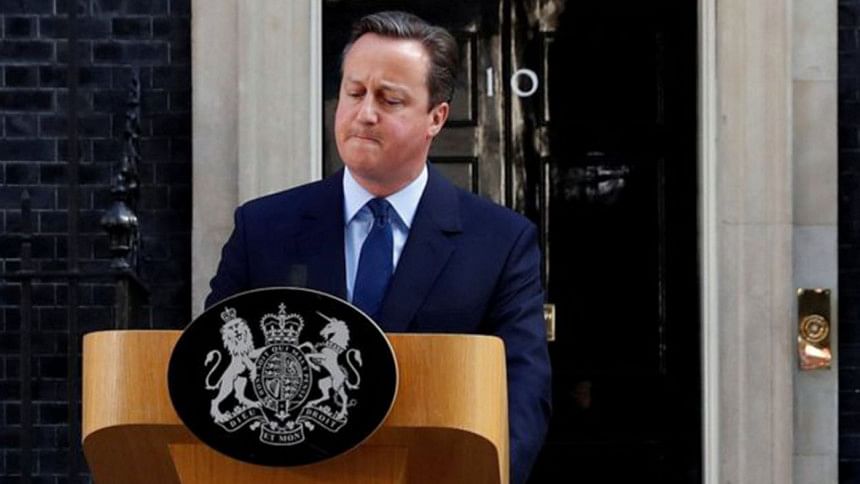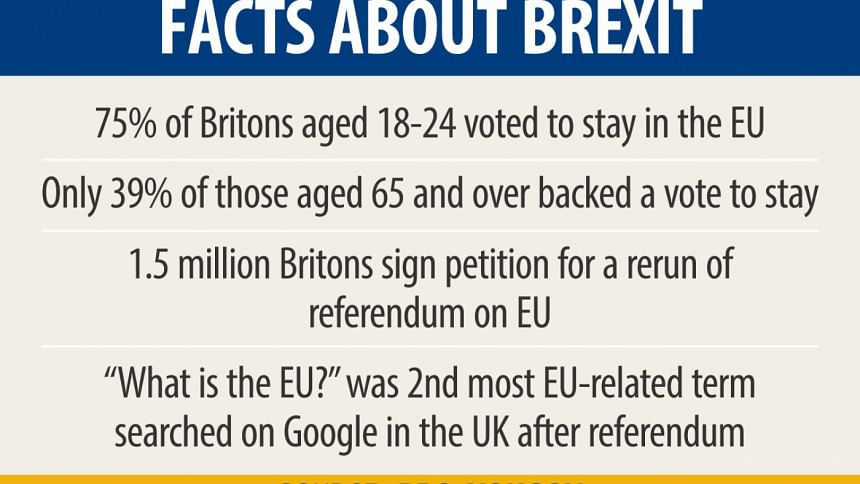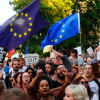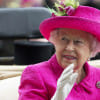Gamble makes him tragic hero

David Cameron may now be likened to two of his predecessors -- Edward Heath and Harold Wilson.
Both Heath and Wilson have secured a special place in the history of UK's joining and remaining in the European Union. Cameron joined them now by reversing the history written by his predecessors.
Conservative Party leader Edward Heath had led the UK to join the European Economic Community, which was later evolved as EU, from the first day of 1973.
Yet, he felt proud to say, "I've worked for this for 25 years, I was the prime minister who led Britain into the community."
His successor, Labour leader Wilson, had gambled on the debate on UK's membership in the then EEC. In the general election in 1974, the Labour Party promised to hold a referendum to decide UK's membership in the EEC.
In the referendum held on June 5, 1975, British voters backed the UK's continued membership of the EEC by a large majority in the country's first nationwide referendum.
Just over 67 percent of voters supported the Labour government's campaign to stay in the EEC, or Common Market, despite several cabinet ministers having come out in favour of British withdrawal, said a BBC report on June 6, 1975.
The result was later hailed by PM Wilson as a "historic decision". The win saved his political life as his Labour Party was split prior to the referendum.
In April 1975, a one-day conference held by the Labour Party to debate the issue voted by almost 2-1 to leave the EEC. Wilson favoured the campaign for staying in the EEC. Many of his colleagues and in the cabinet and party campaigned against his stance.

The Conservatives were also campaigning to stay in the EEC. Margaret Thatcher, the then elected Conservative leader, said the "Yes" vote would not have happened without the opposition's support for it. Like Wilson, Thatcher's political career was not disturbed. She became the UK premier and emerged as "Iron Lady."
RECKLESS DECISION TO HOLD REFERENDUM?
In the 2015 general election, Cameron followed the path of Harold Wilson and promised to hold a referendum on UK's membership in EU. The difference is: Wilson was the then opposition leader. But Cameron was premier when he made the promise.
Cameron returned to power by wining the 2015 elections. He then proceeded with his gamble on a referendum.
The day after the referendum, the Economist in an article "David Cameron quits Downing Street with a ruined legacy" was critical of Cameron's political strategy for holding the referendum.
"To put it kindly, this was a fantasy. Mr Cameron took the reckless decision to pledge to hold a vote (against the better wisdom of George Osborne, the chancellor, who is also bound to go) back in 2013. He had not needed to."
"The public was certainly not clamouring for one. His motive was to placate his cranky backbenchers. His consideration given to the risks and realities of such a promise was lacking. His understanding of the “renegotiation” of Britain's EU membership, on which he rested his strategy, was cursory at best."
The results of the June 23 referendum show public opinion in the UK kept gaining ground against the EU.
Four decades ago when UK joined the EEC, a survey found 39 percent of the respondents was unhappy about joining the EEC, 38 percent was happy and 23 percent didn't give any opinion, according to an AP news item on January 1, 1973.
The opinion research centre for the BBC conducted the survey with the participation of nearly 1,000 Britons in all parts of the country and all walks of life in mid-December in 1972.
In the latest referendum, 51.9 percent voters opted to leave the EU. Only 48.1 percent opted for remaining in the EU which was 67 percent in 1975. This shows people were not happy with the way things were moving.
THE SHOCKING OUTCOME
The outcome of the referendum shocked Europe and other parts of the world as well.
It has been a big blow to the EU, a bloc of the 28 nations, which has kept peace in Europe for the last six decades after the World War-II.
Both the world wars originated in Europe. Against such a background, the evolution of the EU has effectively buried the fear of another war. Therefore, the EU has been playing a significant role in maintaining world peace and stability.
Given the situation, UK's departure from the EU, many feared, may generate turbulence in Europe as the demand for leaving the EU by rightist leaders may be intensified in some other EU member states.
The referendum also made the fate of integrity of the UK uncertain to some extent.
Immediately after the results of the referendum were made public, first minister of Scotland Nicola Sturgeon said fresh independence referendum for the Scottish people is now highly likely.
In the 2014 referendum on Scotland's independence, David Cameron was successful in securing a win. But political analysts now believe a fresh referendum may prompt Scotland to vote to leave the UK and emerge as an independent state.
Nicola Sturgeon said Scotland is being taken out of the EU against its will as Scottish people voted in favour of staying in the EU. She termed it undemocratic.
In Northern Ireland, the situation is not pleasant when it comes to the integrity of the UK.
Northern Ireland's Deputy First Minister Martin McGuinness has called for a border poll on a united Ireland after the UK voted to leave the EU.
Support for the EU is considerably higher in Northern Ireland and Scotland than the rest of the UK.
It is the English people who voted largely in favour of leaving the EU. And they won the referendum. Their win, however, has also paved the ground for political and economic unrest in the UK in coming days.
David Cameron was unable to resist the outcome of the referendum. He had to announce his resignation by October. How will he be remembered in history? His predecessor Edward Heath had taken the UK to the EU and his move to hold a referendum is set to take the UK out of the EU.
The Economist wrote: "A time will come for reflection on the good in Mr Cameron's leadership of the Conservative Party and his premiership, on his fundamentally correct vision for a one-nation Tory party in possession of the centre ground."
"But it will surely be dwarfed by this giant, nation-changing misstep, one guaranteed to scar the country for decades and diminish his place in the history books. He leaves office in ignominy," wrote The Economist.
Conservative Party leader and former London Mayor Boris Johnson, who launched vigorous campaign to leave the EU, may be the new leader replacing Cameron.
The fate of Jeremy Corbyn, leader of the Labour Party, has also become uncertain after the referendum.
Two senior Labour MPs have submitted a no-confidence motion against Corbyn. In the petition, they said Corbyn had "failed" the test of leadership in the EU referendum as voters even in the Labour strongholds opted to leave the EU.
Despite all these consequences and more possible impacts, there is a bright side of the referendum which is victory for democracy in which none but people hold all the power.
The UK government is not legally bound to abide by the outcome of the referendum. But there is no alternative but to implement the outcome because refusal to do so will be suicidal for the government.
There is a lot to learn for the countries suffering from democratic deficit.

 For all latest news, follow The Daily Star's Google News channel.
For all latest news, follow The Daily Star's Google News channel. 








Comments